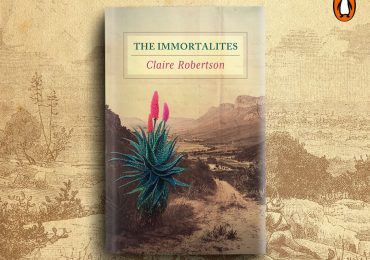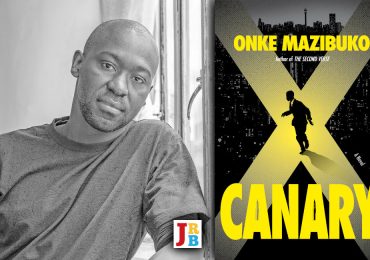A captivating novel that will make you laugh, cry and see the world anew: read an extract from the hauntingly beautiful The Possible World.
Liese O’Halloran Schwarz, an emergency-medicine doctor, published her first novel Near Canaan while in medical school. Her most recent novel is The Possible World, and she currently lives in Chapel Hill, North Carolina, United States.
About the book
Ben is the sole survivor of a crime that claims his mother and countless others. He is just six years old, and already he must find a new place for himself in the world. Lucy, the doctor who tends to Ben, is grappling with a personal upheaval of her own. She feels a profound connection to the little boy who has lived through the unthinkable. Will recovering his memory heal him, or damage him further?
Clare has long believed that the lifetime of secrets she’s been keeping don’t matter to anyone anymore, until an unexpected encounter prompts her to tell her story. As they each struggle to confront the events—past and present—that have defined their lives, something stronger than fate is working to bring them together …
Every now and then I come across a book I wish I’d written. The Possible World is one of those … A gorgeously wrought exploration of who gets to tell the story of our lives, and who gets to inhabit that story with us. – Jodi Picoult
Read the excerpt:
~~~
CHAPTER ONE
BEN
My mom has three freckles, light brown and almost perfectly square, two on her right cheek and one on her nose. She has an up-and-down line between her eyebrows that gets deeper sometimes. Like now, when the car has parked and she’s gotten out, and I still haven’t moved.
‘We’re here,’ she says, opening the back door. ‘Hop out.’
I put my thumb on the seat belt button beside my booster seat. Nobody else in my class still uses a booster seat. In two months, when I turn seven, I can use just the seat belt. If I grow.
‘How long will it be?’ I ask. She looks at her phone.
‘I’ll come back for you at seven. So, four hours.’
‘What are you going to do?’ My thumb still on the button.
She purses her lips in a thinking way. ‘I will go out dancing. I will put on an electric-blue gown that goes all the way down to my toes, and silver high-heeled slippers.’
‘No you won’t.’ She doesn’t have a dress or shoes like that.
‘No I won’t,’ she agrees, smiling. ‘I will probably do some grocery shopping and clean the kitchen.’ She puts a hand on the top of the car door. ‘Or do you want me to stay?’
I sneak a look at the house beyond her.
‘Why does it have to be so many people?’ I ask.
‘It’s not so many. Four is not so many.’
Her phone burrs from her pocket; she takes it out and looks at the screen, then puts it to her ear and turns away, talking. She pushes the car door almost closed and leaves her hand on it, like I might jump out.
How she looks: she has yellow hair that comes down to her chin, eyebrows darker than her hair and brown eyes, a black speck in the right one the shape of a bird with only one wing. One tooth is slightly forward from the others in her mouth, just a little bit, and her smile goes up more on the left than the right. There’s a white line under her chin from a roller-skating accident back when she was a little girl. Two holes in her earlobes where the earrings go, usually the little pearls, but sometimes dangly ones; none today.
How she sounds: her voice brisk in the mornings, telling me to get a move on, softer in the evenings, and when she laughs I think of a brown velvet ribbon falling through the air. The nonsense song she sings to me when my tummy aches: lavender blue dilly dilly, lavender green. I told her once that lavender’s a kind of purple, and purple can’t be blue or green; she paused and then said, But the song’s still good with a question in it. Yes, the song is still good just the way it is. Other things she says: I love you more than pizza, or Bingo, or caterpillars. Last week she asked me, Do you really have a stomachache? while I lay with my head on her soft lap, ear down. You’re having a lot of stomachaches. Shhh, I’m listening to your tummy, I said. Sometimes my stomach hurts when I’m worried about something, she said. Are you worried about something? Sing some more, I said, and she did.
The way she smells. In the morning like hand cream and shampoo. She brings a different smell home with her from the hospital. I said something about it once and now she washes her hands and changes her clothes right after work. Until her next shower, though, there’s always still a trace of that chemical smell.
How she feels—when I go to her room after a nightmare she lifts the covers and it’s warm and she puts her arm over me, across my chest, and it’s warm and solid and she pulls me against her and I can feel that warmth spreading through me and the bad dream melts away. I love you more than bunny rabbits and Jell-O. More than Gorgonzola and crayons. Her long fingers, their smooth unpolished curves of fingernail.
Before is sliding away. I barely remember it. The tall woman with the water-blue eyes, like a mother but not my mother, I know there was a time I saw every detail about her in my mind, but now I see her only in flickers: standing in a kitchen paring the skin from an apple into a looping red curl, or kneeling in the dark spring dirt. I feel the wet on my knees too, and the grainy earth, but as soon as that comes it’s gone again. She lives there now in that warm slice of time before I sleep, and even that is getting smaller, closing like a door.





